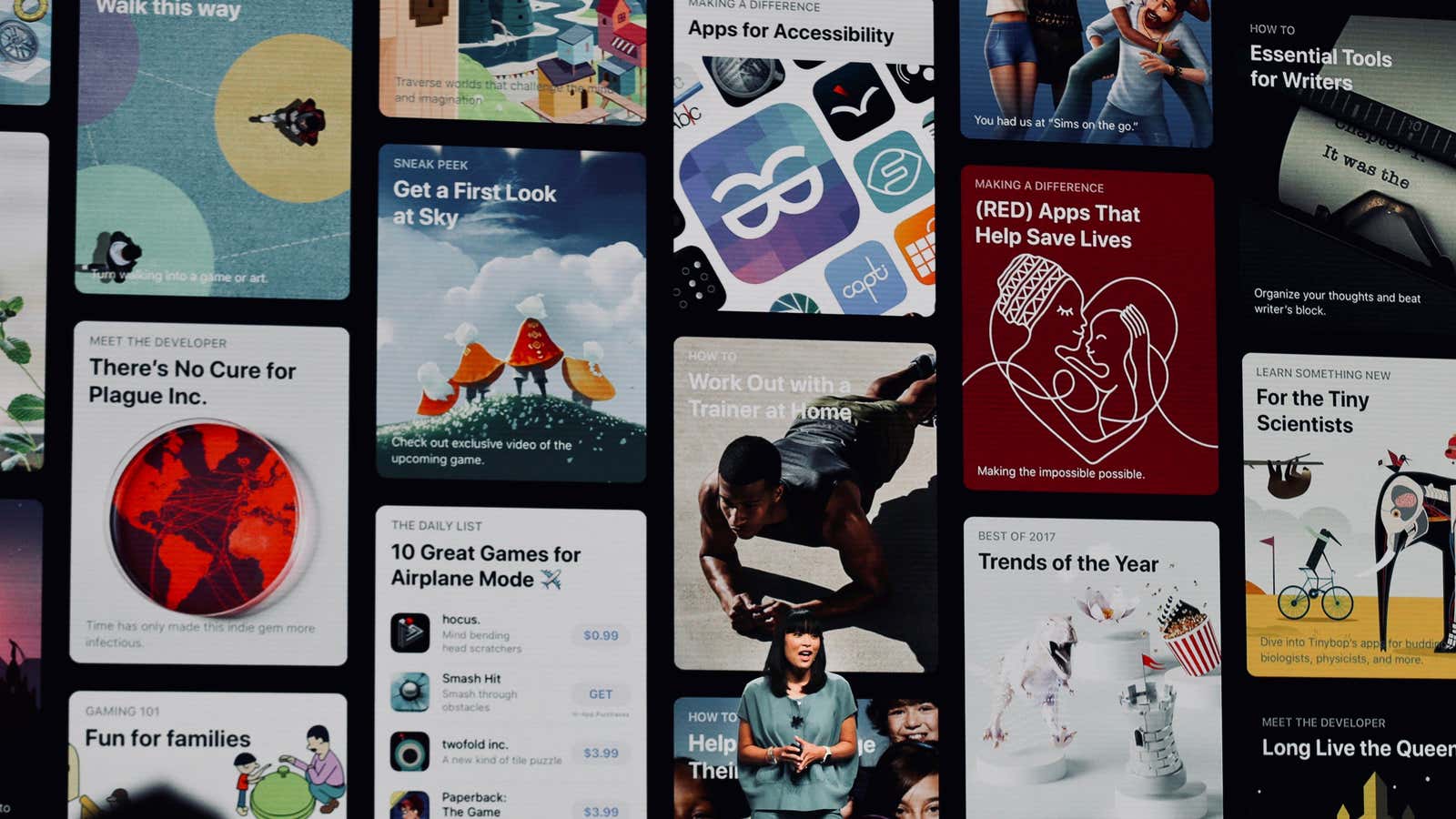There seems to be an app for everything—but there is only one place that iPhone users can access all of them, and that’s the Apple App Store. At least, for now.
Today (Nov. 26), the US Supreme Court is considering whether app store users can sue Apple under federal antitrust law for monopolizing the iPhone app marketplace, prompting high prices for products.
The iPhone users in Apple v. Pepper (pdf) argue that the company’s single-market sales system drives up app prices—and that Apple is responsible for the markup, even though developers are the ones who decide how much their apps should cost. Why? Users contend that because Apple controls the whole app market for iPhones, it is responsible for the prices consumers pay—and that the 30% commission that developers must pay to sell in the company’s store ultimately gets passed onto consumers, and therefore dictates prohibitive prices for purchasers. Apple, for its part, argues that the company cannot be sued, much less held responsible for, products that it neither makes nor prices.
One factor in the judges’ ruling will be the 1977 Supreme Court case Illinois Brick Co. v. Illinois. In that case, justices ruled that direct purchasers of a product can bring a lawsuit under antitrust law for direct violations. But when plaintiffs are suing defendants for an indirect overcharge, they can’t use the laws preventing monopolies and, as a result, cannot recover as much if a defendant’s found liable.
Apple argues that, according to the precedent, it’s not subject to an antitrust suit based on prices set by app developers using its distribution system. Apple successfully managed to dismiss app purchasers’ claims in California district court with this argument. But the Ninth Circuit Court of Appeals overturned the dismissal, finding consumers could proceed. The appeals court considered Apple a distributor operating the App Store and dismissed the company’s claims that subjecting it to a lawsuit from users meant that app developers would then also sue, leading to duplicative damages for a single offense, which the company contends it’s not responsible for anyway.
The high court won’t be deciding the merits of the consumers’ case, just determining if their claim can proceed. But the case has major implications. A win for users in an antitrust claim could prove very costly for Apple, which will be subject to triple damages for monopolizing the app marketplace and likely face a suit from app developers, too. And if the iPhone app purchasers get a green light from the justices, this will signal the viability of other similar electronic marketplace cases, as Amy Howe points out on SCOTUS Blog.
Notably, the federal government and some app developers filed amicus briefs siding with Apple and urging the court to bar the consumers’ case. The government claims (pdf) that the Ninth Circuit incorrectly analyzed the precedent and that it will undermine antitrust law if a mere product distributor must face triple damages for prices it doesn’t itself set. By green-lighting the “pass-on theory,” the government brief states, the high court will render federal antitrust law inefficient and lead to a slew of similarly misguided suits.
The developers argue that the tech company provides them a desirable service by handling that transactions with consumers. They alone set their app prices on the Apple App Store, so the tech company ought not be liable for any alleged mark-ups. They also point out that purchasers’ contentions that they couldn’t purchase the apps elsewhere are incorrect, although the iPhone is a closed system.
Given the prevalence of iPhones, however, and the high likelihood that at least some of the justices are themselves Apple App Store consumers, they may have a different view of the matter. If the case does go forward and Apple ultimately loses to consumers, it will likely be liable for millions of dollars in damages.
